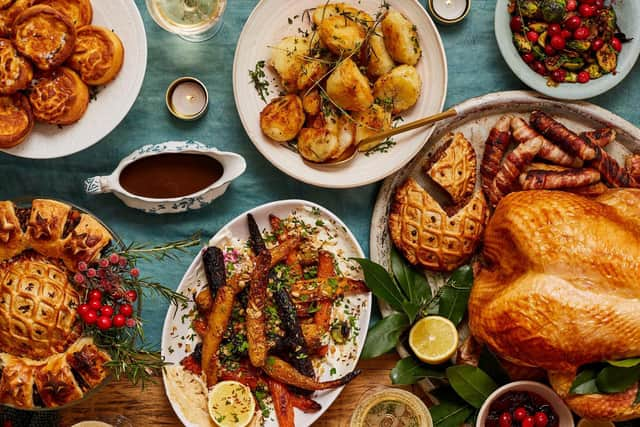No-nonsense festive plans and the so-called pros of the pandemic this Christmas
and live on Freeview channel 276
Over half (55%) of 2,000 people surveyed by SMARTY Mobile will be spending Christmas with less people than they did in 2019 and 26% of the nation will not be seeing the family members they normally would celebrate with.
And so, with the pandemic changing Christmas for many, the most popular form for remote connection with family and friends during the festive period will be through WhatsApp video call (25%), closely followed by Facetime (22%) and Zoom (20%).
Advertisement
Hide AdAdvertisement
Hide AdFor those opting to connect virtually, Christmas morning was voted the most popular time to connect with loved ones. Although 44% of Brits are concerned poor internet connection will let them down, 1 in 5 anticipate relatives not being able to ‘turn on their camera’ and 8% think grandparents may fall asleep during a virtual conversation.


Whilst over a quarter (27%) of the nation have suggested the main focus of arguments this year will be on who to form a social bubble with, 41% claim to actually be grateful for the Covid restriction rule, claiming the new tradition of smaller gatherings will help alleviate annual arguments.
Fifteen per cent of those surveyed admitted they will be doing little or no Christmas decorating and 1 in 10 say they will not be having a traditional turkey or Christmas roast dinner this year.
However, 12% of the population admit to looking forward to the chance to make way for new traditions this Christmas, using the pandemic as an excuse to get rid of the less desirable ones.
Advertisement
Hide AdAdvertisement
Hide AdAn overwhelming 75% believe future Christmases will be different as a result of the new festive traditions made this year, with almost a quarter (23%) agreeing that Christmas will be more about spending time with their closest loved ones rather than organising large celebrations.


Additionally, one in 10 believe Christmas traffic will be a thing of the past with more people choosing to have a virtual Christmas in the future.
SMARTY Mobile has teamed up with award-winning comedian and actor Guz Khan – known for roles including Man like Mobeen and featuring on Live at the Apollo - to analyse the findings and put his perspective on 2020’s new no-nonsense Christmas traditions.
Guz said: “I’ve always loved hearing about festive traditions that friends enjoy and are annoyed by, definitely things I can relate to during my own family gatherings! So while the country breathes a sigh of relief to see the back of traditions like sloppy kisses from aunties and rigid seating plans, it’s brilliant to see the lengths the British public are willing to go to stay connected with loved ones over the holiday period.”
Advertisement
Hide AdAdvertisement
Hide AdThe UK’s top Christmas traditions voted as the most nonsense by the British public are:
Brussel sprouts (17%)
Novelty Christmas jumpers (16%)
Christmas TV scheduling (14%)
The Queen’s Speech (13%)
Christmas pudding (11%)
Board games (11%)
Christmas cards (10%)
Christmas carolling (10%)
Terrible cracker jokes (9%)
Prying questions from relatives (8%)
Sayed Hajamaideen, a spokesman for SMARTY Mobile, said: “Christmas 2020 will be very different to what we’re used to, but the pandemic has taught us the importance of connection and new ways to stay connected with loved ones. SMARTY Mobile is all about keeping things simple and our no-nonsense approach gives choice and flexibility, something we all need a bit of in these ever-changing times.”